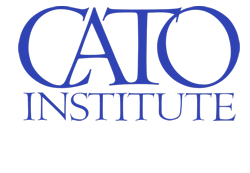Kayla Susalla
Kayla Susalla
As fear over the Chinese government continues to permeate Washington, overseas research partnerships have spurred angst amongst many politicians. The House Committee on Education and the Workforce recently investigated research centers run jointly by American and Chinese universities, analyzing open-source research conducted by Tsinghua-Berkley Shenzhen Institute, Georgia Tech Shenzhen Institute, and Sichuan University-Pittsburgh Institute. The Institutes are funded in part by federal grants and the Chinese government. The report detailed many concerns about the partnerships, including the lack of foreign funding reporting under the Higher Education Act, the potential for the Chinese government to influence research outcomes, US researchers collaborating with Chinese universities affiliated with blacklisted companies, and the People’s Liberation Army using the research to achieve military objectives.
While it is necessary to protect against potentially sensitive information getting into the wrong hands, stifling international collaboration could result in stagnation in areas of interest to the United States.
To address anxieties over the Chinese government maliciously interfering with US government-funded research, House legislators introduced the Defending Education Transparency and Ending Rogue Regimes Engaging in Nefarious Transactions (DETERRENT) Act. Key components of the bill include lowering the required amount for foreign gift and contract reporting from $250,000 to $50,000 and prohibiting universities from entering contracts with a “foreign country of concern” unless a waiver is obtained.
Considering the anecdotes of intellectual property theft and espionage, the reflex to create additional barriers is understandable. Still, Chinese acts of espionage are thankfully rare, and empirical evidence, not anecdotes, is what drives sound public policy. Given the likely limited scale of malicious activity carried out by international actors, placing major restrictions on university research could be unnecessary in most cases and disadvantageous for US development.
Under former President Donald Trump’s China Initiative, which aimed to oust potential Chinese national security threats, MIT professor and Chinese immigrant Gang Chen was charged with espionage for allegedly failing to disclose contracts, » Read More
https://www.cato.org/blog/restrictions-university-research-necessary-or-counterproductive






